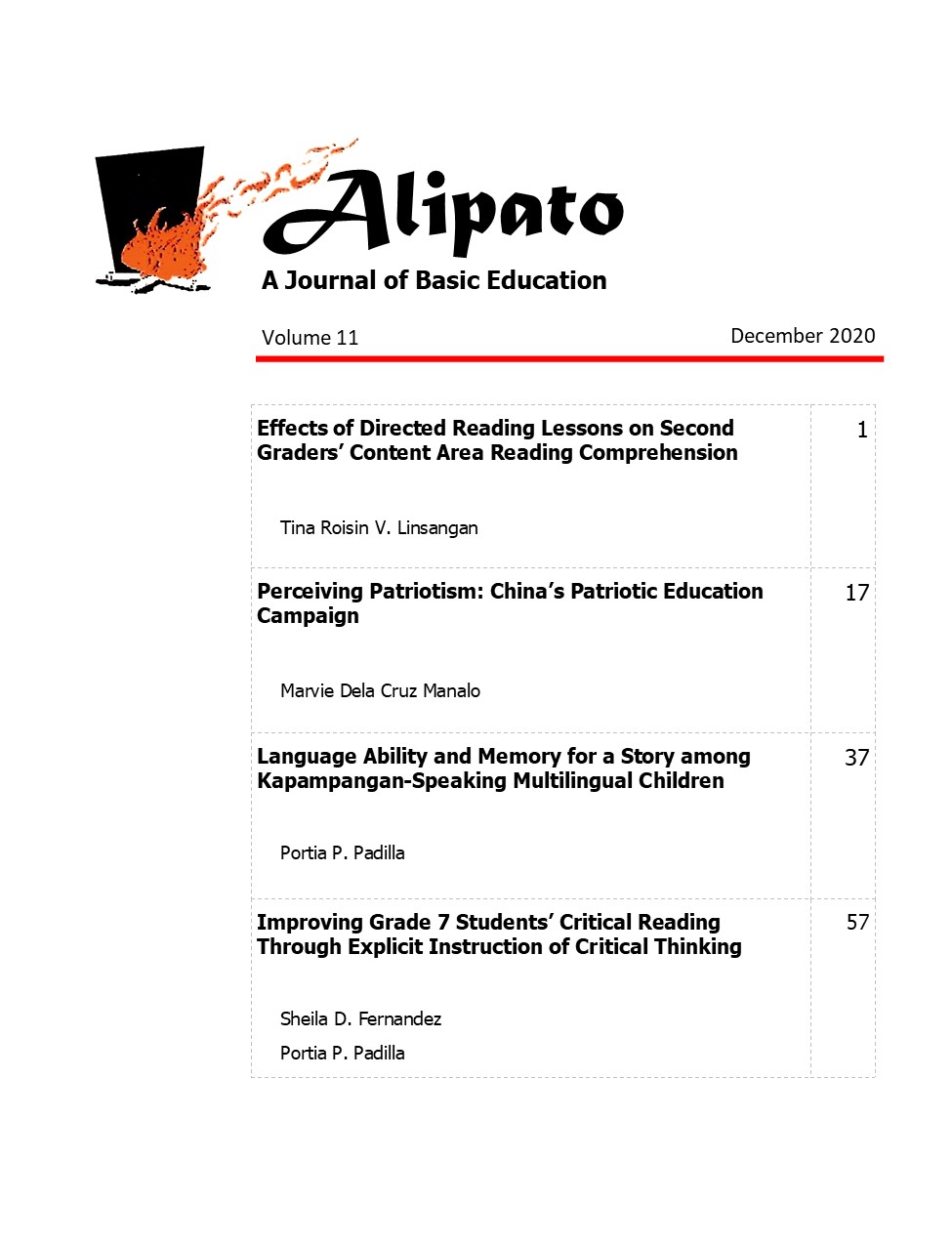Language Ability and Memory for a Story among Kapampangan-Speaking Multilingual Children
Abstract
Language and thought interact with each other. This study hypothesized that language ability would predict memory for a story. Participants were 146 six-to-nine-year-old native Kapampangan-speaking multilinguals. Each age-based group of not more than 10 children was told an unfamiliar Kapampangan story in big book format. Recognition of whether information was previously encountered in the story was measured twice: right after the story session (baseline memory) and six to seven days after (delayed memory). Kapampangan language ability was assessed through a measure of expressive vocabulary. Executive functioning skills (inhibitory control and working memory) were measured and controlled. Results showed age differences in all the variables. Participants’ baseline memory was better than their delayed memory. Consistent with the hypothesis, hierarchical regressions revealed that language ability significantly predicted baseline and delayed memory for a story – even after controlling for the contributions of age and executive functioning. Analyses of covariance indicated that even after controlling for age, children with good language ability had significantly better baseline and delayed memory for a story than those with below average language ability. The findings suggest that language ability is linked to memory, implying that improvements in language ability will enhance memory skills.
Keywords: Language ability, memory, story



